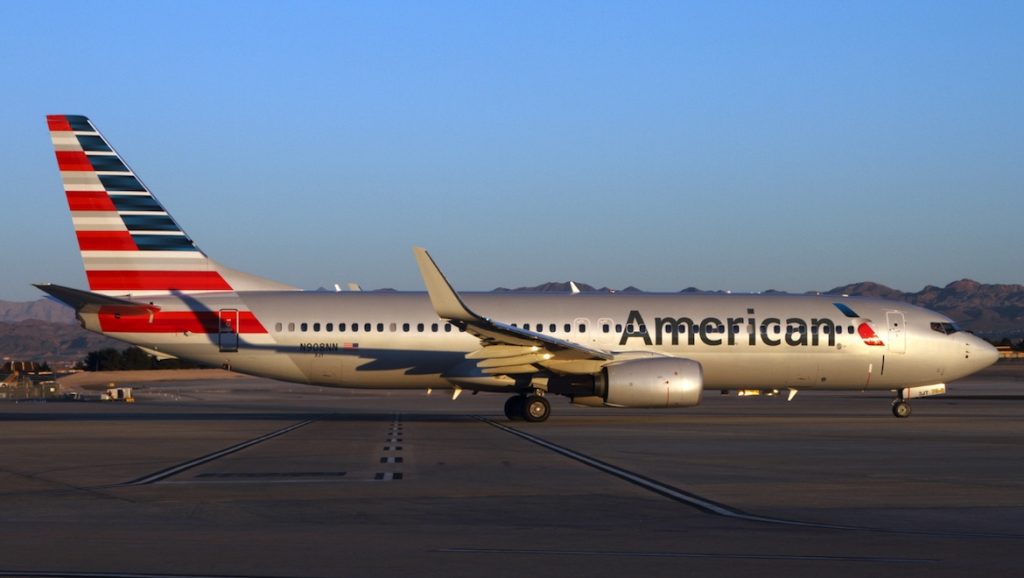
The US Centers for Disease Control and Prevention has advised that even those who are fully vaccinated against COVID-19 should continue to avoid non-essential travel.
The US airline industry has pushed back on the guidelines, and reiterated that air travel poses very little threat of COVID transmission due to the air filters used onboard commercial aircraft, as well as the requirement for all passengers to wear face masks.
“We remain confident that this layered approach significantly reduces risk,” said industry group Airlines for America (A4A).
The guidance serves as part of the CDC’s recently-released guidelines for people who have received their two doses of the COVID-19 vaccine, which includes provisions for meeting other people who are fully vaccinated, as well as low-risk others who have not yet received a vaccine.
However, the CDC stated that non-essential domestic and international travel continues to contribute to the spread of COVID-19 throughout the US.
“Every time there’s a surge in travel, we have a surge in cases in this country,” said CDC director Dr Rochelle Walensky, speaking at the White House on Monday.
Dr Walensky added that the guidance will be revisited when more people in the US, and around the world, have been fully vaccinated.
“We are really trying to restrain travel at this current period of time, and we’re hopeful that our next set of guidance will have more science around what vaccinated people can do, perhaps travel being among them,” she said.
Public health officials have stated that the US surge in COVID cases earlier this year was likely due to higher levels of travelling during the winter holiday seasons, and have also raised concern that the upcoming spring break period could see a similar uptick in cases.
It comes off the back of recent TSA figures that suggest air travel figures are consistently on the rise, with numbers tipping 1.3 million on Sunday, the highest figure recorded in one day since 3 January, the end of the holiday travel season.
It marks the second run-in between airlines and the CDC since the Biden administration took office in January.
Earlier this year, the CDC stated it was “actively looking” into implementing pre-flight testing prior to domestic flights, mimicking the policy already put in place for overseas arrivals.
The new domestic testing requirement would largely extend the administration’s newly introduced mandatory requirement for all overseas arrivals into the US to show proof of a negative COVID-19 test, taken no more than three days prior to their flight.
Major US domestic airlines pushed back against potential policy, and warned that it could further impact already subdued demand for air travel throughout the country.
Airline groups at the time also raised concerns at the current capacity for testing.
The White House ultimately conceded to the pressure from the airline industry and confirmed it was no longer planning to require a negative COVID-19 test prior to domestic flights, however said the agency “will continue to review public health options for containing and mitigating spread of COVID-19 in the travel space”.
Meanwhile, last month, The International Air Transport Association called upon the World Health Organisation to formally support the end of any quarantine requirements for vaccinated travellers.
The IATA has long pushed for governments to end travel restrictions and quarantine requirements, which have contributed to the ongoing slump in air travel demand.
At that time, the airline industry body was pushing the WHO to support the relieving of travel restrictions, and rule that travelling is safe without quarantine so long as a person is vaccinated against COVID-19.
According to the IATA, acknowledgement of that principle by the United Nations body is going to be vital to the survival of the airline industry moving forward, as well as speed up the development of its digital travel pass.
“We can say whatever we want, what we do need is for the WHO to come out and say the same thing, so that it becomes a universal acceptance that once you’re vaccinated you should not have to go through any of these hoops,” Nick Careen, IATA’s senior vice president for passenger matters, said.




